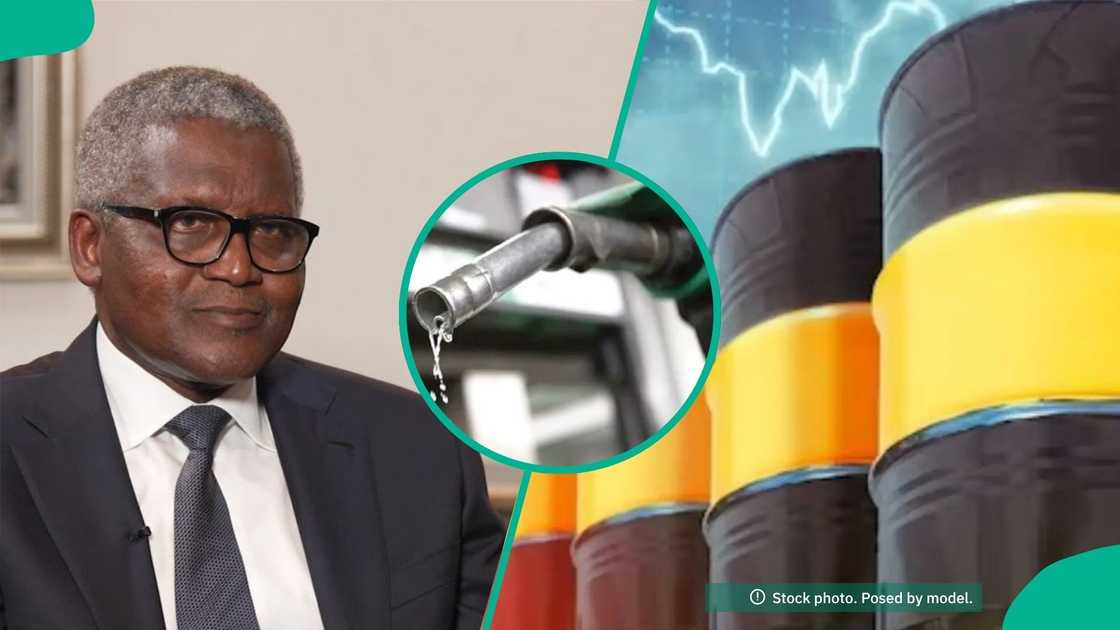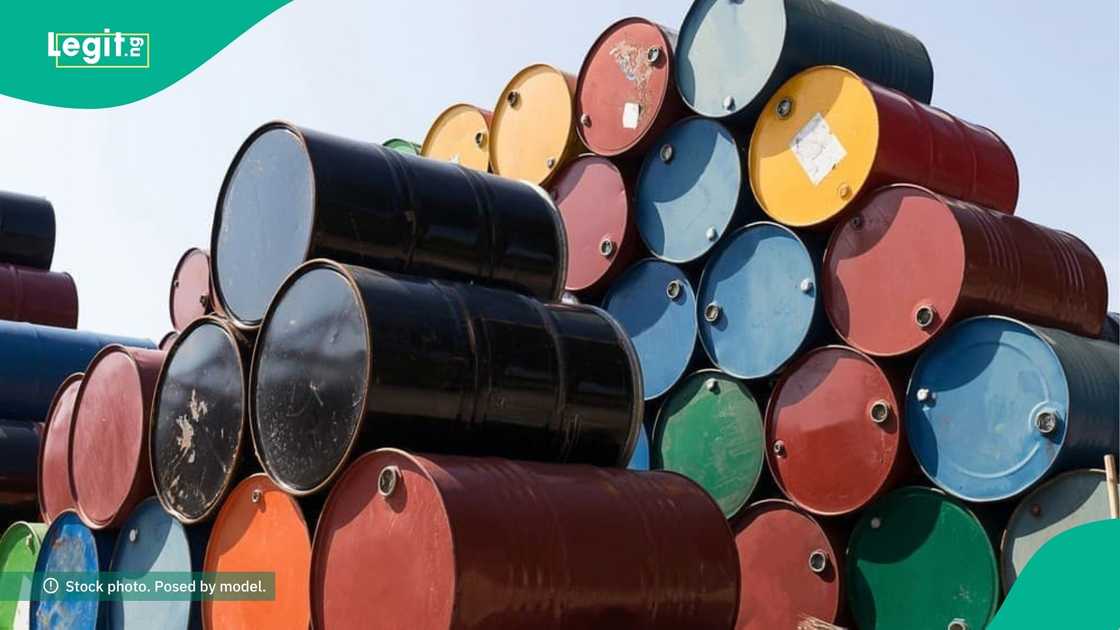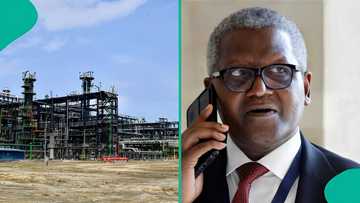Dangote Battles Importers as Nigeria Spends $1.26bn on Fuel Import, Others in 3 Months
- The CBN released $1.26 billion in Q1 of 2025 to finance fuel imports, despite the increased availability of petrol from the Dangote Refinery
- Data from regulators show that marketers still imported 69% of Nigeria’s petrol supply between August 2024 and October 2025
- The competition between Dangote Refinery and importers remains, with marketers sourcing fuel from whichever option offers the lowest cost
Legit.ng journalist Victor Enengedi has over a decade's experience covering Energy, MSMEs, Technology, Banking and the Economy.
The Central Bank of Nigeria (CBN) has provided a total of $1.26 billion to players in the oil and gas sector for the importation of petroleum products and related goods during the first quarter of 2025.
This development comes amid ongoing fuel importation by marketers despite the growing availability of locally refined petrol from the Dangote Refinery.

Source: Getty Images
Figures from the Nigerian Midstream and Downstream Petroleum Regulatory Authority (NMDPRA) indicate that petroleum marketers were responsible for importing about 69% of the 21 billion litres of petrol consumed in Nigeria between August 2024 and early October 2025.
Between January and March 2025, the country imported approximately 2.28 billion litres of petrol, even as output from the Dangote Refinery increased.
Fuel importation remains a key driver of foreign exchange demand, putting pressure on Nigeria’s external reserves and the naira’s exchange rate.
Despite this, the import volume for the quarter represents one of the lowest in recent years, signalling a gradual transition towards local refining and blending.
Data from the CBN’s Quarterly Statistical Bulletin show that the apex bank disbursed $457.83 million in January (36.2% of the total), $283.54 million in February (22.5%), and $517.55 million in March (41.3%).
On the supply side, NMDPRA figures revealed that 724.5 million litres of petrol were imported in January, 760 million litres in February, and 803.7 million litres in March.
The competition for market dominance between the Dangote Refinery and fuel importers has intensified in recent months.
While the refinery has been exporting petrol to countries such as the United States, some marketers continue to rely on imports, citing pricing advantages.

Read also
Naira surges again as foreign reserves near $43 billion, banks, FX dealers slash dollar rates
Despite Dangote’s assurance that its 650,000-barrel-per-day refinery can meet domestic demand and still export surplus products, pricing remains the key factor influencing marketers’ purchasing decisions.
Why marketers choose to import crude oil
Speaking on the issue, Chinedu Ukadike, National Publicity Officer of the Independent Petroleum Marketers Association of Nigeria (IPMAN), said cost determines where marketers source their products.
Ukadike explained in an interview with The Punch that marketers operate on very slim profit margins, so they will always buy from the source offering the lowest rate.
He said:
“In this business, pricing is everything. Marketers will always go for the most affordable option because our margins are very thin. If imported products are cheaper, we have no choice but to patronise importers. But if Dangote’s refinery offers a better price, of course, we will buy locally.”
He added that the price difference between imported and locally refined fuel fluctuates frequently due to changes in global oil prices, variations in exchange rates, and government policies.

Source: UGC
Dangote expects increased NNPC stake in refinery
Meanwhile, Legit.ng earlier reported that Aliko Dangote stated that the NNPC could increase its 7.2% stake in the Dangote Refinery once the facility proves its full operational capacity.
The NNPC had earlier reduced its stake from 20% to 7.2% to focus on developing compressed natural gas (CNG) infrastructure.
Dangote also revealed plans to list 5–10% of the refinery’s shares on the Nigerian Stock Exchange while maintaining a majority ownership.
Source: Legit.ng




